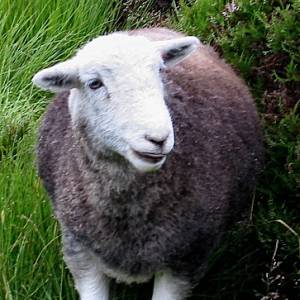Hard Work!
For no good reason, except to have a little Sunday outing, we drove to the village of Islip not far from where we live. This village was the birthplace of Edward the Confessor.
We found the village en f?te, and roads blocked off by marshals, because the first participants in the cycle ride promoted in our picture were expected to arrive at any moment!
We were right by Islip Bridge, where we understand there was a significant battle during the Civil War.
During the English Civil War, the village was strategically important because it was so close to the River Cherwell. In 1645, occupying Royalist troops were beaten by Oliver Cromwell at the Battle of Islip Bridge. The River here is the River Ray. Just downstream of our vantage point the rivers Ray and Cherwell join. We have seen this bridge before, and our Blipfoto entry for 24 April 2011 shows that there is a nice pub just beyond which became exceptionally popular with the cyclists after they had arrived from Westminster.
Here is the finish line of the cycle route.
Quite coincidentally, this was a very appropriate day for us to see the end of a long cycle ride. Our son was himself finishing a 105 mile cycle ride in the desert and mountains behind San Diego in California. He reported that "The last 30 miles were fairly tough, into a headwind and - worse - coming into the city and having to stop at all the traffic lights and stop signs. But by then we were done with most of the hills, at least."
In Islip, here is the third person to reach the finish.
Nearby, in the graveyard of Islip church we came upon the grave and memorial of William Buckland. In fact, you see the inscription for Mary, Buckland's wife more clearly than that of Buckland himself. By the way, Mary was from Abingdon and her maiden name was Morland, which may bring associative ideas to those of who are occasional beer drinkers in Abingdon.
Buckland was very important scientist in the 19th century, and was a member of my Oxford college. In 1825, William Buckland planned to take up a church living in Hampshire, but before could get there he was made a Canon of Christ Church, which Canonry, to quote Wikipedia rather than my own words, was a "a rich reward for academic distinction without serious administrative responsibilities." My present-day canon colleagues might disagree with this judgement about their administrative duties. Buckland certainly possessed academic distinction, and was essentially the founder of palaeontology and moden geology. Buckland was appointed to the first chair of geology at Oxford in 1814. In 1821 he examined the newly found Kirkdale cave in northern England. The cave floor was littered with bones, some half-buried in dried silt. Buckland drew the inferences that the cave had formed first, the bones deposited next, and then the mud. Buckland's research earned him the Royal Society's highest honour, the prestigious Copley Medal, in 1822 - the first time it was ever awarded for geological work. On one occasion, his wife Mary helped him decipher footmarks, found in a slab of sandstone, by covering the kitchen table with paste, while he fetched their pet tortoise and confirmed his intuition, that tortoise footprints matched the fossil marks. His passion for scientific observation and experiment extended to his home life. Not only was his house filled with specimens - animal as well as mineral, live as well as dead - but he claimed to have eaten his way through the entire animal kingdom: zoophagy. The most distasteful items were mole and bluebottle; panther, crocodile and mouse were among the other dishes noted by guests. Perhaps in the days of Heston Blumenthal these dishes do not seem so strange...
Augustus Hare, a famous English raconteur and contemporary, recalled, "Talk of strange relics led to mention of the heart of a French King preserved at Nuneham in a silver casket. Dr. Buckland, whilst looking at it, exclaimed, 'I have eaten many strange things, but have never eaten the heart of a king before,' and, before anyone could hinder him, he had gobbled it up, and the precious relic was lost for ever." The heart in question is said to have been that of Louis XIV.
I wonder how many Professors of Geology have been Deans of Westminster! More particularly, I wonder how many people have ever possessed the twin distinctions inscribed on Buckland's tomb "DD FRS".
- 0
- 0
- Nikon COOLPIX S520
- f/8.2
- 14mm
- 200

Comments
Sign in or get an account to comment.


